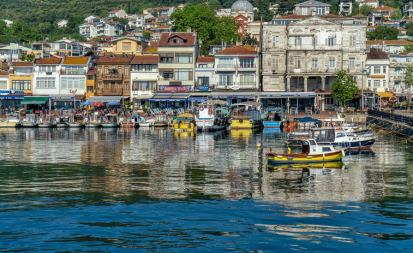A Millennia of Anatolian Cultural Heritage: Turkish Handicrafts
New Delhi, 4th June 2024: Ancient civilisations and diverse ways of life have left their mark on the Anatolian lands for centuries, and Turkish handicrafts have been a vital part of this rich cultural legacy. Anatolia's
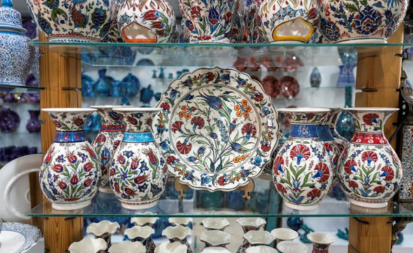
New Delhi, 4th June 2024: Ancient civilisations and diverse ways of life have left their mark on the Anatolian lands for centuries, and Turkish handicrafts have been a vital part of this rich cultural legacy. Anatolia’s heritage embraces countless artistic traditions, from rug and carpet weaving to wood carving, ceramic and tile works, miniature paintings, and ebru (Turkish paper marbling).
Evolving over the centuries and in almost every region, the Turkish handicraft tradition still thrives, preserving its sustainability from generation to generation via the master-apprentice relationship. Let’s take a closer look at the vibrant underpinnings of Turkish handicrafts – traditions that will captivate you as you travel across Türkiye and perhaps display them in a beautiful corner of your home…
Handcrafted Weavings
Turkish carpets are the product of a nine-thousand-year-old tradition that utilises natural materials such as silk, wool, cotton, and organic dyes. The Neolithic city of Çatalhöyük is where the first examples of carpet weaving in Anatolia were found, and this skill was passed down to future generations, mainly from mother to daughter. Painstakingly woven on looms and using fine threads, Anatolian carpets have long been renowned worldwide. Regarding purchasing carpets and rugs in Türkiye, the Grand Bazaar immediately comes to mind. These hand-woven rugs and carpets from various regions of Anatolia feature distinct textures, motifs and colours. Hereke carpets are considered among the best woven in the world, while Uşak carpets are known for their star and medallion motifs. Bünyan carpets are unique to Kayseri and attract attention with intricate patterns, and Döşemealtı rugs and carpets are laid on the fields in Antalya during the summer to fade their colours into appealing pastel hues. The Grand Bazaar offers abundant carpets, including Bergama carpets with tribal embroidery and Gördes rugs with their symmetrical knots.
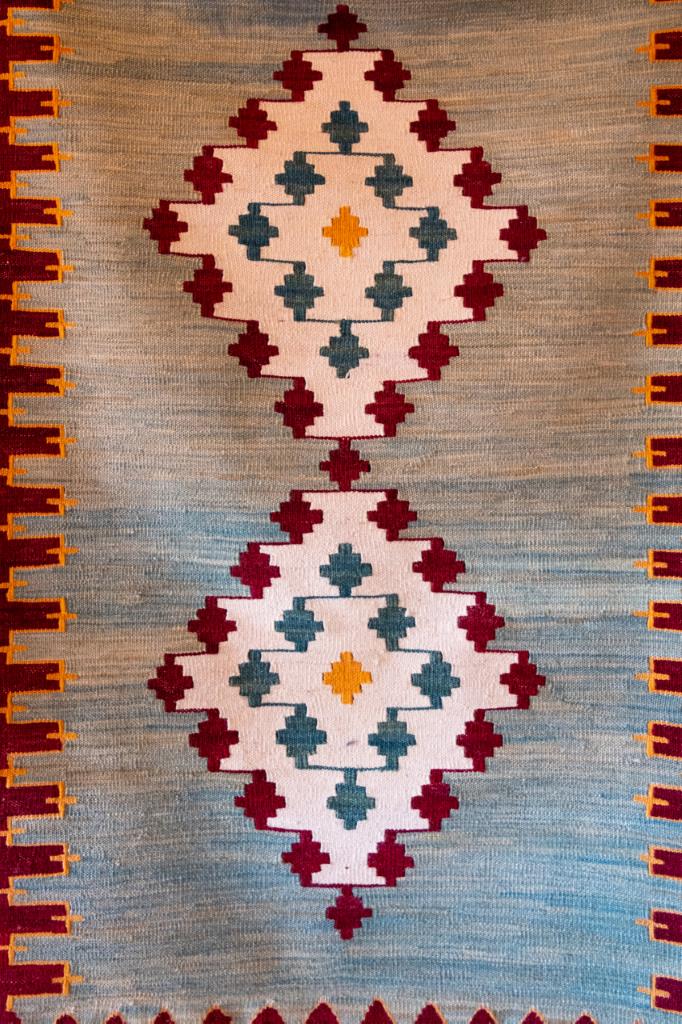
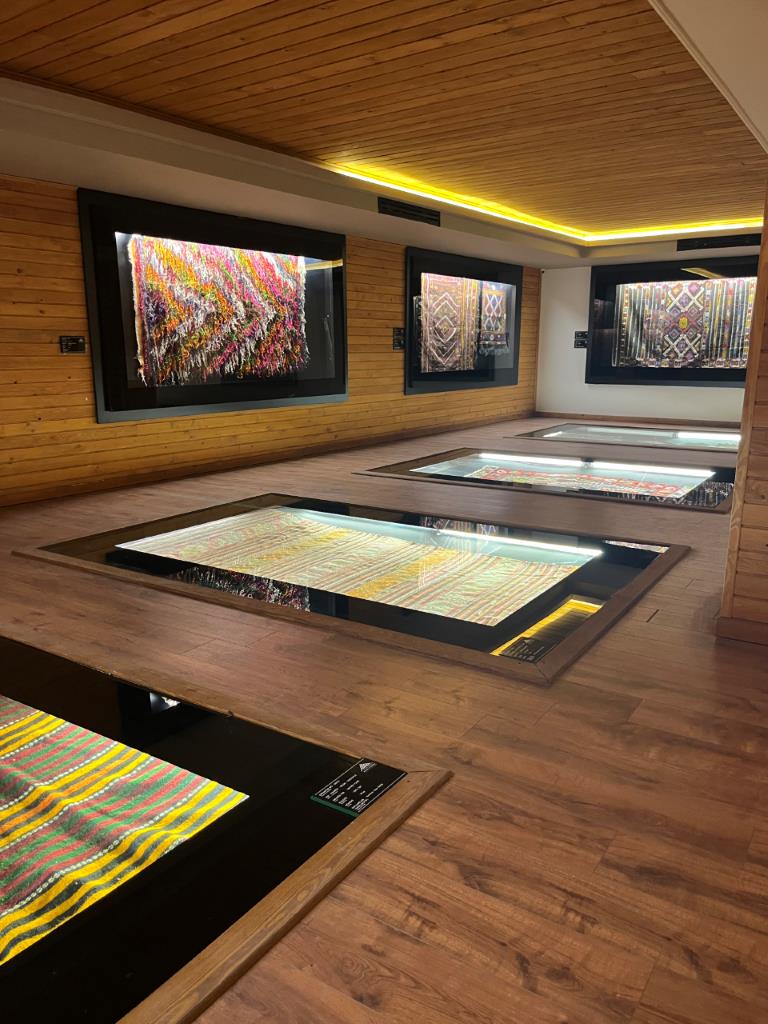
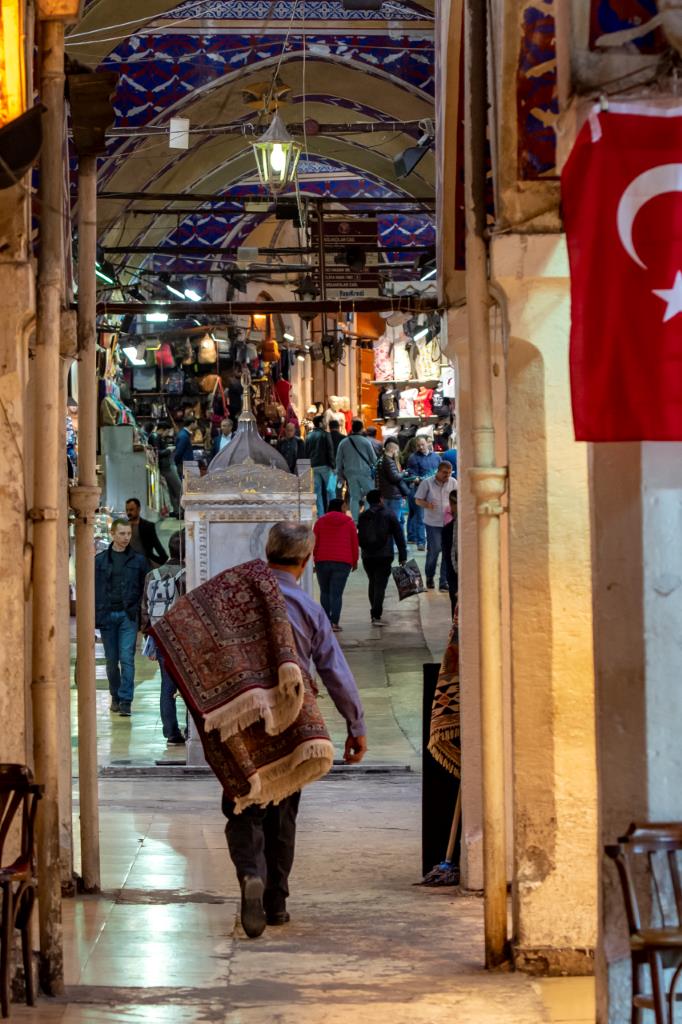
Turkish Ceramics: Traditional Tile Art
Tile art, a UNESCO Registered Intangible Cultural Heritage of Türkiye, is a distinctive field featuring baked clay soil surfaces decorated with various colours and motifs. For centuries, tile art has adorned objects and, notably, buildings’ interior and exterior facades, making it synonymous with Turkish culture. İstanbul’s magnificent Sultanahmet Camii is among the most prominent examples of this tile work. Commonly known as the Blue Mosque, the structure’s interior is covered in 20,000 gorgeously patterned tiles. Tile works have taken on distinct shapes with each subsequent period. The craft is passed down to new generations via the master-apprentice relationship, as is common in other Turkish arts. İznik and Kütahya are Türkiye’s most famous tile art centres. These cities and the Grand Bazaar have some of the most beautiful İznik and Kütahya tiles, produced in traditional and contemporary styles. Visitors will find beautiful vases, jugs, cups, and many other items in various colours, models, and patterns.
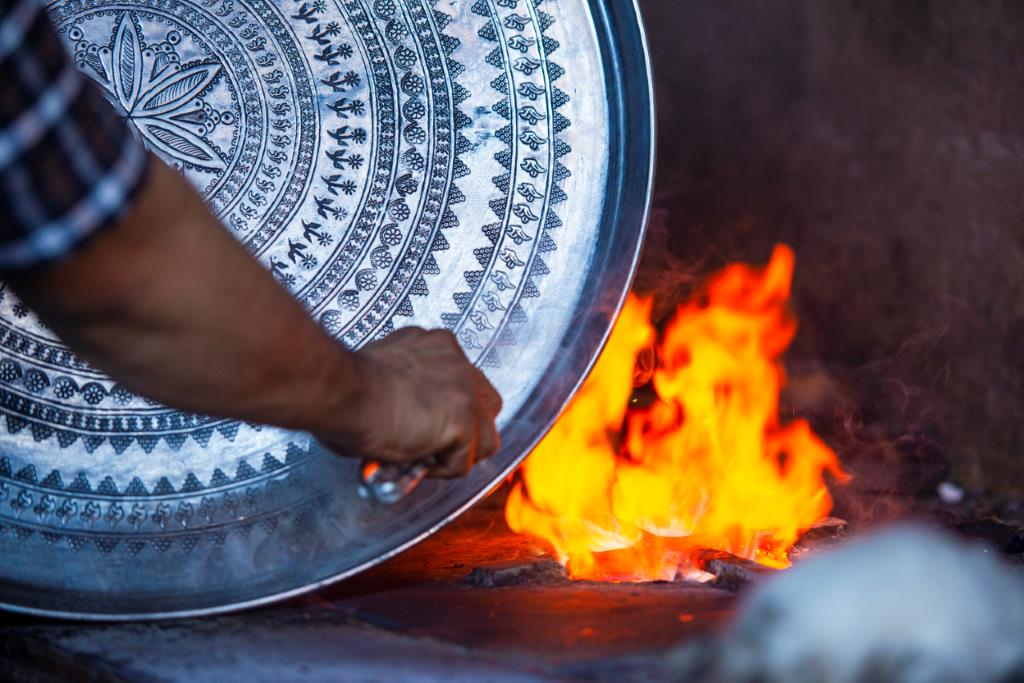
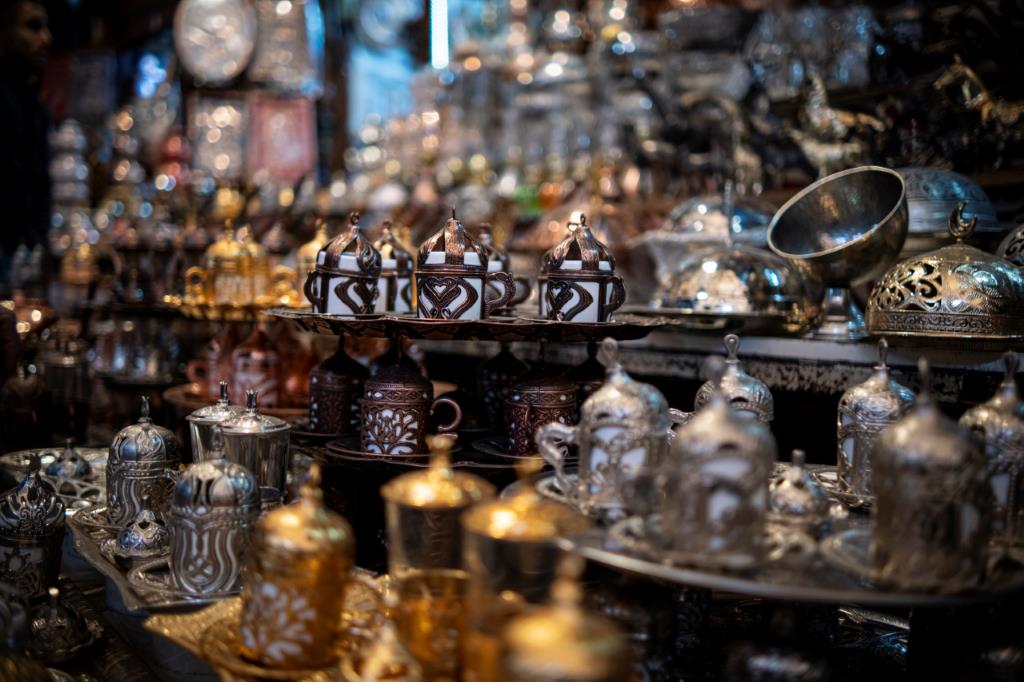
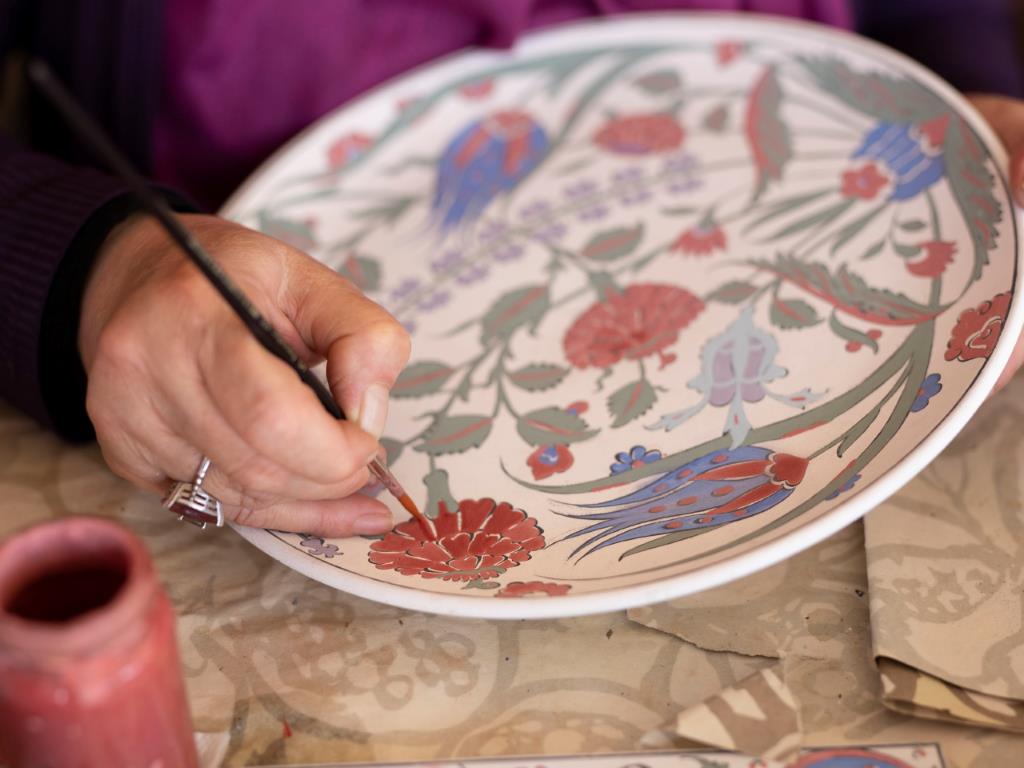
Shimmering Elegance: Copper Workmanship
Since Türkiye is an important coppersmithing centre, the country’s copper products are regarded as excellent souvenirs. Coppersmithing is the process of forging and shaping copper –the first metal used for weapons and tools – and beaten copper is still used to create various kitchen and ornamental tools. Coppersmith masters’ products range from pots to coffee sets and trays to jugs, and the artful patterns are entirely captivating. Some of the finest examples of copper craft can be found in Gaziantep’s famous Bakırcılar Çarşısı (Coppersmith Bazaar). Also known for its gastronomic traditions, Gaziantep is part of the UNESCO Creative Cities Network, and the city’s Tarihi Bakırcılar Çarşısı (Historical Coppersmiths Bazaar), where you can buy coffee pots, cookware and a variety of other large and small copper household items, also showcases the work of the artisans who breathe life into copper.
About Türkiye
Located in the Mediterranean and connecting Asia and European continents that are separated by the famous Bosphorus, Türkiye is a destination that welcomes tourists from all around the world. The country that has always been a hub for cultural interaction and home to varying climates inspires visitors today with its history, nature, and gastronomy that reflect the diversity of civilizations for centuries. Located at the crossroads of cultures, Türkiye has a distinctive understanding of art and fashion, which is the synthesis of tradition and modernity, and its extremely dynamic shopping and entertainment life also attracts visitors from all over the world
—-
 English
English French
French German
German Italian
Italian


